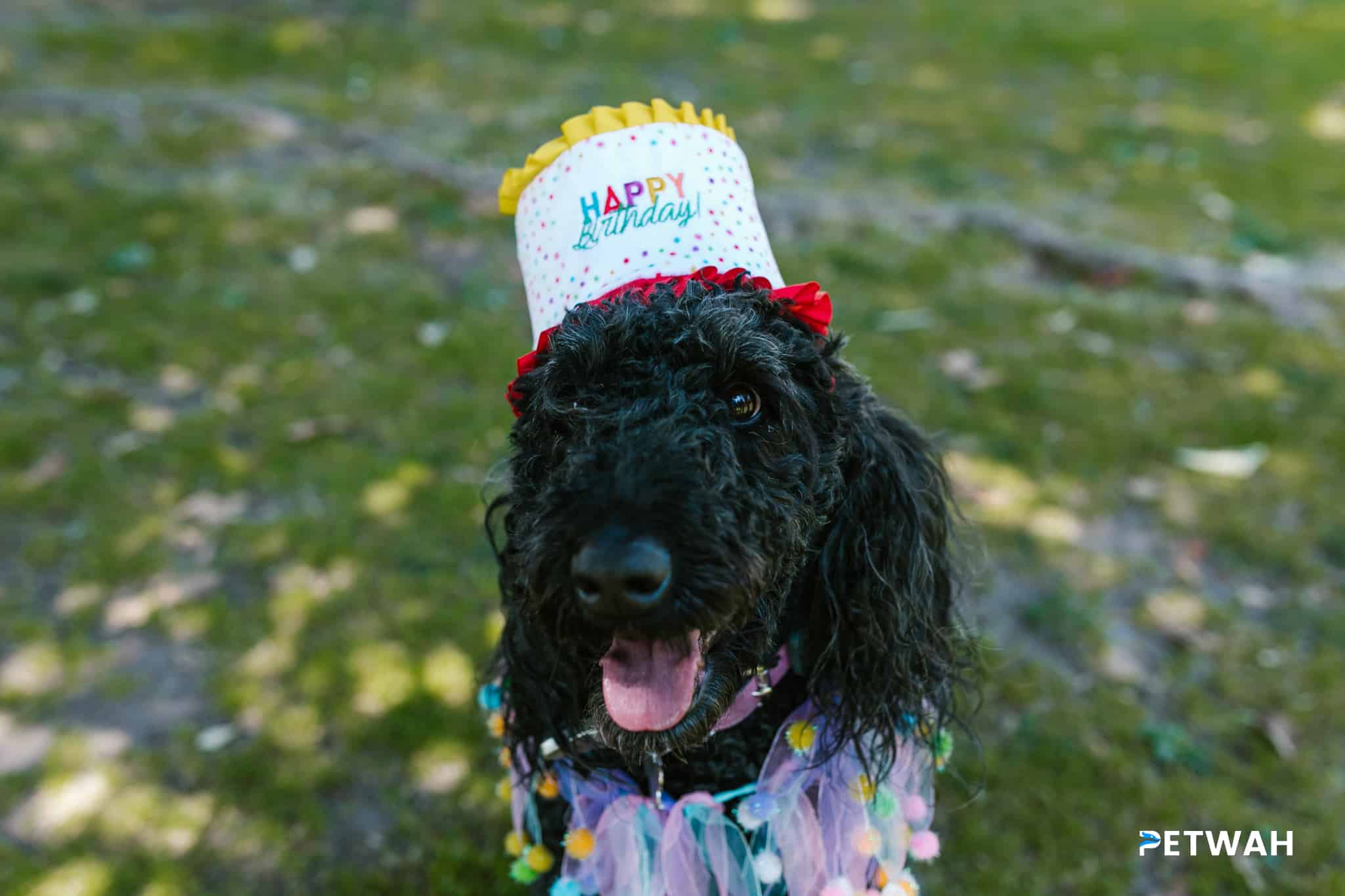Raising a puppy is hard, it takes tremendous commitment and plenty of patience, after all, you are raising a small life.
Many puppy owners experience puppy blues. New puppy owners are left wondering if they made the right choice and whether the biting, chewing, jumping, and lunging will ever stop. Few even consider rehoming their dog.
What exactly is puppy blues?
‘Puppy blues’ is a term used to describe the negative experiences and feelings that few people experience after bringing home a puppy. After the immediate euphoria of the new puppy wears off, many puppy owners (and commonly first-time dog owners) feel overwhelmed and without support.
This causes pet parents to struggle to bond with their puppies and even consider returning them to the breeder or rehoming their puppy.
Why do Pet Owners get puppy blues?

You might think to yourself, how could you not love that gorgeous puppy? There are plenty of reasons you might dislike the puppy, to be honest, it’s a common experience.
- You might be struggling with toilet training, and your house might be a mess.
- Your puppy might be biting and nipping at you all the time.
- The puppy could be chewing and destroying everything in the house.
- The puppy doesn’t stop barking.
- The puppy growls when you go near their toys or food, you might be worried they will turn on you.
- You might be feeling overwhelmed, anxious, or generally negative toward your dog.
Don’t worry, there is hope. Many of the problems listed above have solutions that are worth a try before you take the step to rehome your dog.
Understanding the Puppy Blues
Before you bring your new dog home, you might have felt anticipation and formed an idea in your mind of how it would be. However, the reality of integrating the dog into your lifestyle will be different from how you imagine it. You may wonder whether it was a good idea to get a dog, or whether the dog might be better off with someone else. You might feel like nothing is going right or feel like you can’t catch a break. In some cases, you might even feel like you don’t have a meaningful connection with your dog.
Puppy blues affect anyone, no matter if it’s your first or nth time bringing home a puppy.
How Long Do Puppy Blues Last?
Puppy blues can last anywhere from a few days to months. If you currently have a puppy, it may even recur when your puppy reaches a new developmental stage, including fear periods and adolescence. As time passes, recurrences of puppy blues tend to be shorter and less intense.
Few owners experience puppy blues often occur within a few days of bringing your puppy/dog home. For others, the puppy blues might not set in for a few weeks. This is often the case for those who have rescued a dog whose personality as well as behaviors take time to appear.
What are the causes of Puppy Blues?
Several factors can cause puppy blues, these range from sleep deprivation to the eventual realization that you are responsible for another creature’s life. Understanding the cause will help normalize the experience.
Causes of puppy blues:

Change in Your Sleep Habits and/or Quality
Particularly if you bought a puppy home, you may now be waking up several times a night to take them out or to comfort them. Say you do get to sleep; you will notice that you are not sleeping as deeply. This lack of sleep is likely to impact your mental health, it will also make it more difficult to regulate your emotions. A lack of sufficient and good quality sleep can cause feelings of anxiety, depression, being distracted, and being overwhelmed.
Changes to the Daily Routine
On top of your regular schedule, after you bring your puppy, you must also factor in walks, playtime, meals, training, as well as potty breaks. You may have to carefully plan any outing and understand how to navigate new time constraints. These responsibilities will likely cause a lot of stress as well as anxiety while you work towards a new normal.
Disruptions
From having to clean up a potty accident to managing a burst of puppy energy and love, it might feel like you can never just relax or have more than 15 minutes of calm.
Increased Demands of Attention
In addition to everything else you do during a normal day; your new dog will require loads of attention. Even if they are calm, you must be vigilant to make sure they don’t get into things that they shouldn’t, for example, chewing something that’s off limits. This kind of constant attention exertion will be exhausting.
Grieving Your Freedom
A puppy will even make regular tasks such as just running to check the mailbox require planning. If you are living alone, you might have to turn down invitations to get together with friends or forego spontaneous plans. Because you need to go home to let your dog out. This change of freedom and flexibility can bubble up as irritation, frustration, or even make you feel trapped.
Lack of Information

If you don’t know what’s normal for your dog at its age and stage of development, as well as not knowing how to deal with issues like barking or resource guarding, it will ultimately make you feel lost. No matter if you have a puppy or a new dog, all the things you don’t understand or can’t sort will start to feel overwhelming and take up a lot of mental energy.
Unmet Expectations
While bringing a new dog into your life, you might have envisioned all the fun things you would do together. The reality, at least at first, will likely not match up to the expectations you set. The cacophony between your expectations and reality can make you feel overwhelmed, sad, or in some cases even disappointed.
Underlying or Preexisting Mental Health Conditions
The instant changes to the routine, changes in sleep habits/quality, and challenges of integrating a puppy/dog into your life can exacerbate anxiety and depressive disorders. A study has found that an unfavorable attitude towards your dog could increase depression symptoms.
You might find that you are more anxious, irritable, or sad. You might experience more extreme symptoms like suicidal ideation. If this change happens shortly after bringing your new dog home, it is most likely a case of puppy blues piling on top of your existing mental health condition.
Handling the Responsibility of a Creature’s Life
The reality of being responsible for another creature creates intense feelings for many dog or puppy owners. You might be feeling like you are under a lot of pressure, wondering what this means about how you’d handle being a parent. You might also start to think about how patterns of discipline or boundaries are showing up from your childhood. It can feel overwhelming, and scary, and could even provoke anxiety.
Tips for Dealing with the Puppy Blues
Before you decide how to deal with puppy blues, determine what’s the cause. This will help you focus your energy on making changes or help you in integrating strategies that will directly relate to your personal experience. You just need to be creative and flexible to try different things. What works for me might not work for you exactly, it may need some tweaks, and what’s helpful to you may change over time.
Here are a few ways you can deal with the puppy blues:

1. Ask for Help
Don’t be shy, reaching out to friends or family members for help will not make you look small. If you need a meal but don’t have time or energy to make dinner? Why not ask a friend if they are willing to drop something off. Do you need an hour to run errands or take a nap, why not ask one of your friends or relatives if they can come over and watch the dog?
2. Connect with Others
If everyone around you is excited and you don’t wish to drag others into your hardships, by admitting you’re struggling, instead of feeling alone through the experience, try connecting to others. You can connect with others to normalize and validate your experience and provide much relief. Facebook as well as Reddit have dedicated groups for those who are experiencing puppy blues. A few local humane societies might also offer in-person groups.
3. Call the Vet
If you are worried about whether something is normal for the puppy or the new dog, just give the vet a call. Many vets can answer a range of questions over the phone and can help your mind to be at ease. Most vets wish to work collaboratively with pet owners and will also provide you with the information along with the tools you need to make sure the dog’s physical, mental, and behavioral health is good.
4. Research
Information is available in various forms, ranging from books to podcasts to online videos, on everything, including potty training, barking, as well as reactivity. Preparing yourself with information will also help you feel more capable of raising the new dog while integrating them into your life. You might also want to lean on friends or family members if they have a well-behaved dog. You can ask them what resources they used and if they would share them with you.
5. Adjust the Expectations
Reasonable expectations that are in line with your dog’s age, developmental phase, breed, and history will help set you up for a happier experience. For example, expecting a 10-week-old puppy to be completely potty trained will ultimately lead to disappointment, frustration, or even anger. If you are not sure what is reasonable, research will help and so will your vet.
6. Take a Class

Classes will empower you with information along with techniques to work with your dog to better your experience. Especially puppy classes, as these classes may also be a great place to connect with other dog parents who are experiencing the same joys as well as challenges of puppy parenting.
7. Track and Celebrate Progress
Try picking three main issues, then track them for two weeks. The process of keeping track, either on paper or on your phone, will likely help you notice trends before you get the result. Tracking and celebrating progress will also help you feel more optimistic now. It will also motivate you to keep up the hard work.
8. Take a Break
It takes effort to be attentive, patient, and upbeat about the new dog in your life all the time. Taking care of yourself is also critical, it includes taking a break. The time of the break doesn’t matter, be it 20 minutes with the puppy in its crate while you have a shower, or a two-hour nap while someone else watches over them. It could even be a full day while your dog is in daycare, make sure to make time for breaks. Tip – Try to build in several small breaks throughout your day, to make sure you don’t over-exert yourself.
9. Remember This Phase is Temporary
When you are deep in the puppy blues, an hour can feel like a lifetime, believe me, I’ve been there. Take things moment by moment, remember that they will grow up, they will adjust, and you and your dog will both find a joyful as well as a loving new normal.
10. Pat Yourself on the Back
The pressure to get everything right is overwhelming. As you can, give yourself a pat on the back, whatever progress you are making, it’s good. If your puppy is safe, has access to food and water, and gets any veterinary care they need, you are doing good. Everyone has good and bad days. If things don’t go quite right, remember that you have many opportunities in the future.
11. Talk to a Therapist
Be it a case of puppy blues, anxiety, depression, or just the general overwhelming feeling of this life transition, talking to a therapist can help. In addition to treating any mental health conditions you are going through, therapists will try to provide safe, non-judgmental support. Therapists can help you process the difficult parts of the experience and find ways to address the challenges.
Final Thoughts on Puppy Blues

The initial stages are a time when you are supposed to be enjoying your new dog and building a lifelong friendship, however, dealing with the puppy blues makes it hard. While you’re amid it, it can feel never-ending. Yes, everyone’s circumstances as well as experiences are unique, but you are not alone. Remember that on the other side of the puppy blues are way more years of love as well as friendship and memories to be made with your dog.
The emotional bond you will build with your dog will be worth it. Your dog will affect your emotional and mental state significantly over the years, including the eventual loss of your pet. So, I sincerely say this to you, don’t get disheartened due to puppy blues, as the bond, you will form with your dog will outweigh any hardships or struggles you may face.
Keep moving forward, take it day by day, eventually, you will be able to create memories that you will cherish. Don’t be knocked sideways because of any reason, and think of rehoming the puppy, struggle, and suffer, but endure and move forward, in due course, good times will appear, truthfully, they await you.
If you liked this article (or if it helped), leave a comment below or share it with friends so they can also know Puppy Blues: How to cope when things go wrong.







